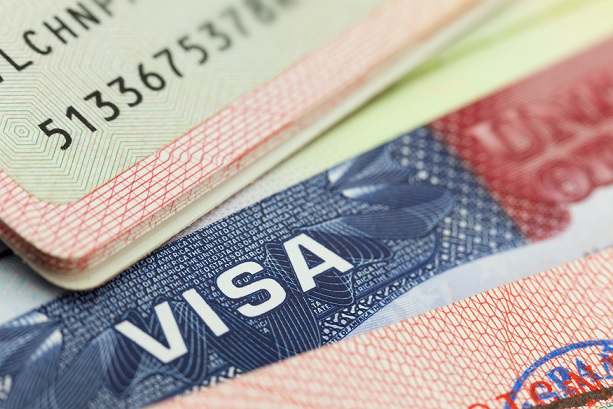The United States has long been a beacon of opportunity for individuals in various fields, particularly science and research. For many scientists and researchers around the world, access to the U.S. means not only advancing their careers, but also contributing to cutting-edge developments that benefit humanity. The EB-1 Visa for Scientists and Researchers, designed specifically for individuals with extraordinary ability, provides a pathway for top professionals in these fields to immigrate to the U.S. and continue their work in one of the most resource-rich and technologically advanced environments in the world.
In this article, we’ll explore what the EB-1 Visa for Scientists and Researchers is, how it applies to scientists and researchers, and the process for obtaining this prestigious visa.
What is the EB-1 Visa?
The EB-1 Visa for Scientists and Researchers is an employment-based immigration visa for individuals who demonstrate extraordinary ability in their respective fields. These fields include the arts, sciences, education, business, and athletics. It is one of the most sought-after visas in the U.S. because of its clear advantages, including the fact that it does not require a job offer or labor certification. This visa category is further divided into three sub-categories, one of which is specifically tailored to scientists and researchers: EB-1A for individuals of extraordinary ability, EB-1B for outstanding professors and researchers, and EB-1C for multinational executives and managers.
For scientists and researchers, the EB-1B category provides a streamlined path to permanent residence, often referred to as a green card, allowing them to work and live in the U.S. without the constraints of temporary visa renewals.
By focusing on the EB-1 Visa for Scientists and Researchers, professionals in the fields of science and research can capitalize on the unique opportunities provided by this visa.
Why is the EB-1 visa beneficial for scientists and researchers?
1. No Job Offer Required for EB-1A
Scientists and researchers applying for the EB-1A visa do not need a formal job offer from a U.S. employer. This is a great advantage because it allows professionals to explore multiple opportunities without being tied to a single employer. For those seeking positions in academia, industry, or even starting their own businesses, the flexibility offered by the EB-1A visa can be a significant draw.
2. Premium Path to a Green Card
One of the most significant benefits of the EB-1 visa is its premium status. Unlike many other immigration categories, EB-1 visa applicants are not required to undergo the labor certification process, which is necessary to prove that no qualified U.S. worker is available for the position. This saves a significant amount of time and effort, making the process faster and more streamlined for top-tier candidates.
3. Direct path for outstanding professors and researchers
The EB-1B visa category is specifically designed for outstanding professors and researchers who have achieved international recognition for their work. It allows them to come to the U.S. to continue their academic or research careers at universities, research institutions, or private organizations with advanced research departments. The EB-1B visa requires a job offer from a U.S. employer, but it is excellent for those already working in high-demand fields such as biotechnology, medicine, or environmental sciences.
4. Faster processing time
Due to its high priority in the U.S. immigration system, the EB-1 visa often comes with faster processing times than other employment-based visas. This is especially beneficial for researchers and scientists whose work may be time-sensitive or tied to specific projects with deadlines.
Eligibility Criteria for the EB-1 Visa
To qualify for the EB-1 visa, applicants must provide clear evidence of extraordinary ability, outstanding academic achievement, or significant contributions to their field. The eligibility requirements vary slightly between the EB-1A and EB-1B categories.
EB-1A (Extraordinary Ability)
Applicants must provide evidence of sustained national or international recognition in their field. This may include
- Awards or prizes in your field
- Publications in major scientific journals
- Membership in associations that require excellence
- Evidence of significant contributions to the field
- Participation as a judge or reviewer of the work of others in the field
While a Nobel Prize or other major international award is not required, it certainly strengthens an application.
EB-1B (Distinguished Professors and Researchers)
For this category, applicants must demonstrate that they are internationally recognized for their work and have at least three years of teaching or research experience. They must also have a job offer from a U.S. employer in an academic or research position. Evidence for the EB-1B visa includes
- Evidence of significant research contributions
- Academic papers or books published in major journals
- Testimonials from peers and colleagues in the field
- Invitations to speak at conferences and seminars
How to Apply for the EB-1 Visa
The EB-1 visa application process varies depending on whether the individual is applying from within the U.S. (through adjustment of status) or from outside the U.S. (through consular processing). In both cases, the first step is for the applicant or his or her employer to file a petition with U.S. Citizenship and Immigration Services (USCIS).
1. File Form I-140
The process begins with the filing of Form I-140, the Immigrant Petition for Alien Workers. In the case of an EB-1A visa, the individual may file this form on his or her own behalf. For EB-1B applicants, their employer must file the petition.
2. Gathering Supporting Documents
The success of an EB-1 petition depends on the supporting documents submitted to the USCIS. Applicants should prepare comprehensive evidence that demonstrates their contributions and recognition in their field. This may include
- Copies of awards or certificates
- Written articles, publications, or books
- Letters of recommendation from experts in the field
- Documentation of any leadership roles or conference presentations
3. Premium Processing Option
Applicants may opt for premium processing, which guarantees a faster response time from USCIS. With premium processing, USCIS will review the petition within 15 calendar days, providing a faster decision.
4. Consular Processing or Adjustment of Status
Once the Form I-140 is approved, individuals outside the U.S. will go through consular processing, while those already in the U.S. may apply for adjustment of status (Form I-485). If approved, the applicant will receive his or her green card, granting permanent residency in the U.S.
Overcoming Common Challenges in the Application Process
The EB-1 visa application process is highly competitive, and applicants may face challenges in proving their extraordinary ability or outstanding contributions. Some common obstacles include
- Insufficient documentation: USCIS requires substantial evidence to support the applicant’s claims. It is essential to provide not only awards and publications, but also letters of recommendation from other leading experts in the field.
- Job offer requirement for EB-1B: For researchers and professors applying under the EB-1B category, obtaining a job offer in the U.S. from an approved employer is a necessary step. This can be challenging for those without established connections in the U.S. academic or research sector.
- High standards for approval: The “extraordinary ability” criterion is subjective, and not all applicants will meet USCIS’s stringent expectations. It is often beneficial to seek legal advice from immigration attorneys experienced in handling EB-1 cases.
Conclusion
The EB-1 visa offers a remarkable opportunity for scientists and researchers to contribute their expertise to the United States. With a focus on recognizing extraordinary ability and achievement, the EB-1 visa can expedite the immigration process for those who have proven themselves to be leaders in their fields. For scientists and researchers who want to continue their work in a country known for its research and innovation, the EB-1 visa is a critical gateway to achieving their professional and personal goals.
If you are a scientist or researcher with a passion for advancing your field, the EB-1 visa may be your path to a bright future in the United States.



